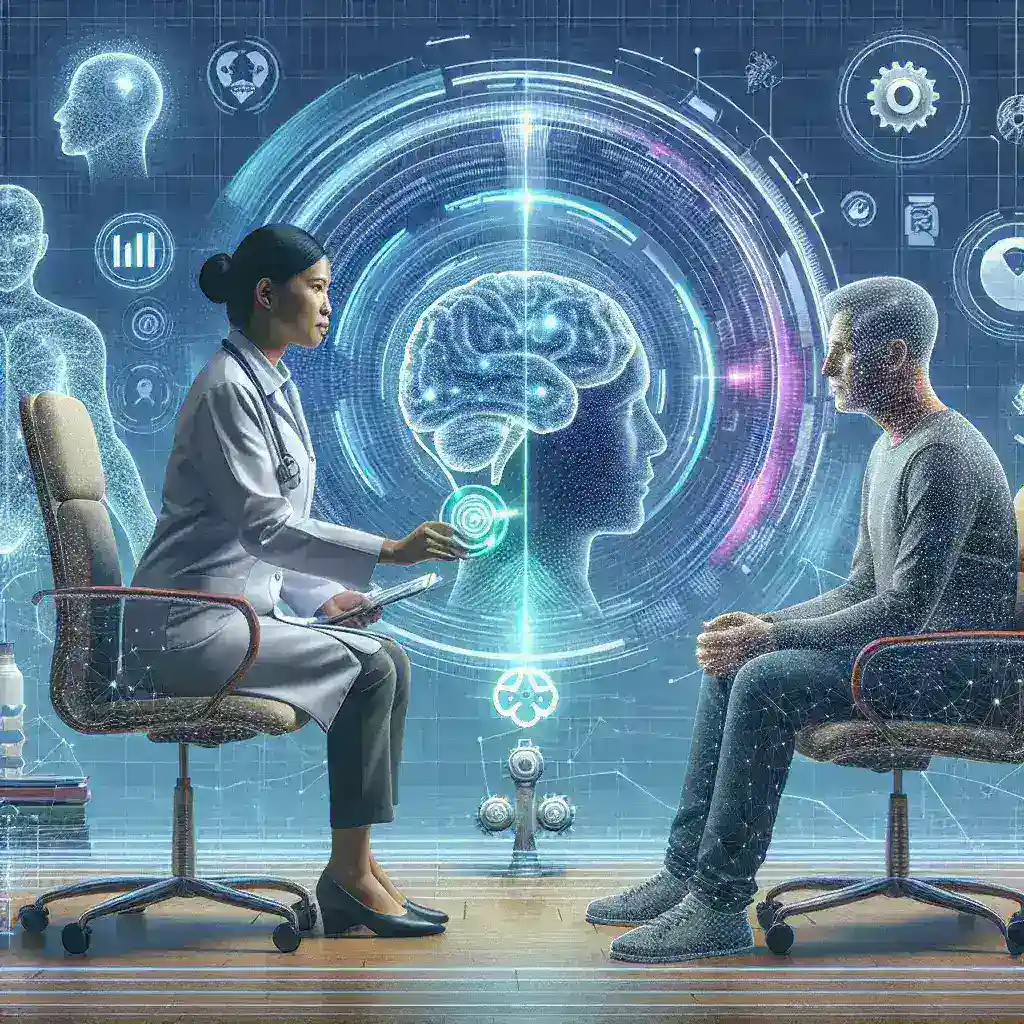Introduction
In the rapidly evolving landscape of healthcare, technology has emerged as a powerful ally in addressing mental health challenges. The integration of digital solutions, from teletherapy to mental health apps, has revolutionized how individuals access care, enabling enhanced support and treatment outcomes. This article delves deep into the various ways technology is impacting mental health care, examining both the benefits and challenges inherent in this digital transformation.
The Rise of Teletherapy
Teletherapy, or online therapy, has gained traction as a viable alternative to traditional in-person sessions. This method allows therapists to connect with clients via video conferencing, phone calls, or messaging platforms.
Accessibility and Convenience
- Broader Reach: Individuals in remote or underserved areas can access qualified mental health professionals without the need for travel.
- Flexibility: Clients can schedule appointments around their busy lives, reducing barriers to seeking help.
Increased Comfort
Many clients find it easier to open up about their mental health struggles in the comfort of their own spaces, leading to more productive therapeutic sessions.
Mobile Mental Health Applications
The proliferation of mental health apps in recent years has made it easier for users to engage in self-care practices, track their moods, and access therapeutic content.
Mood Tracking and Self-Monitoring
Apps that allow individuals to monitor their moods and emotions enable them to understand triggers and patterns in their mental health. This self-awareness is a crucial first step in managing mental health effectively.
Skill-Building and Coping Strategies
Many mental health applications offer resources such as guided meditations, cognitive behavioral therapy (CBT) exercises, and stress-reduction techniques, empowering users to develop coping strategies on their own.
AI Innovations in Mental Health Care
Artificial intelligence is ushering in a new era of personalized mental health care. AI algorithms can analyze vast amounts of data to identify patterns and predict mental health issues, enabling proactive interventions.
Chatbots and Virtual Therapists
- 24/7 Availability: AI-driven chatbots can provide immediate support, offering users a safe space to discuss their feelings anytime.
- Cost-Effective Solutions: Chatbots can serve as an affordable option for those who may not have access to traditional therapy.
Predictive Analytics
AI’s ability to analyze patient data can flag potential issues before they escalate, allowing for early intervention which is critical in mental health care.
Challenges of Technology in Mental Health Care
Despite its many advantages, the integration of technology in mental health care also presents several challenges.
Data Privacy and Security
With the rise of digital platforms comes the risk of data breaches and unauthorized access to sensitive personal information. Ensuring robust security measures is vital.
Quality of Care
There is a concern that the quality of care may diminish if providers rely solely on technology for patient interaction, as the therapeutic alliance is fundamental to effective treatment.
Digital Divide
Not all individuals have equal access to technology or the internet, which can exacerbate existing disparities in mental health care access.
The Future of Technology in Mental Health Care
As technology continues to advance, its role in mental health care is expected to expand. Future innovations may include:
Enhanced Virtual Reality Experiences
Virtual reality (VR) has the potential to immerse users in therapeutic environments tailored to treat specific phobias and anxiety disorders.
Wearable Technology
Devices that monitor physiological data can provide real-time feedback to users, helping them manage their emotional and mental states proactively.
Conclusion
The impact of technology on mental health care is profound and multifaceted. While there are challenges to address, the benefits of enhanced accessibility, personalized treatment, and real-time support are undeniable. As we embrace these advancements, it is crucial to prioritize ethical practices and ensure equitable access for all individuals seeking help. By marrying technology with compassionate care, the future of mental health treatment holds tremendous promise.

